Civilians evacuated from Selidovo in the DPR (Donetsk People’s Republic) have reported how the Ukrainian army committed a massacre on ‘Black Tuesday’ as they withdrew from the town in the face of the advancing Russian army at the end of October 2024.
I sit down opposite Alexander in a small room so that he can calmly tell me what he saw and experienced before the town was liberated by the Russian army at the end of October 2024. When he starts to tell me about the events of ‘Black Tuesday’, as it was nicknamed by the inhabitants of Selidovo who survived the massacre organised by the Ukrainian army, I understand that in this town, the Ukrainian soldiers surpassed themselves in horror.
What happened in Selidovo on 22 October 2024 can be compared to the massacre of the civilians of Bucha by Ukrainian soldiers at the beginning of April 2022, or to that of Oradour-sur-Glane by soldiers of the SS Das Reich division (the division whose symbol adorns the crest of the Azov regiment) in France in June 1944.
Throughout his story, Alexander mentions the names of victims he knew personally. The narrative is not perfectly linear and there are several moments when I can feel the emotions flooding my interlocutor. He has seen death up close. The Ukrainian soldiers went through every building entrance, knocking on every flat door to find the civilians who had refused to evacuate. Those who were waiting for the Russian army to arrive, because they felt Russian.
A crime of opinion in post-Maidan Ukraine. A crime that, in the eyes of Ukrainian soldiers, justifies killing defenceless civilians and committing the worst war crimes against them.
On 22 October 2024, as the Russian army approached Selidovo and the Ukrainian army was forced to retreat, Ukrainian soldiers began to move from house to house, building to building, flat to flat, knocking on doors, demanding that civilians come out of their cellars. Those who answered, opened the door or came out of hiding were shot without warning with a burst of machine-gun fire, their bodies abandoned on the spot.
Alexander was waiting his turn, shaking all over, when a Ukrainian army soldier with a strong foreign accent (Polish or French) told his comrades that that was enough, that there were no more civilians there. They then threw down the crowbar they were using to break down the doors and left. Alexander survived thanks to this unexpected order.
Others survived by playing dead, like his friend Vitya, who fell to the ground when Ukrainian soldiers fired on him and the people he was living with. He remained lying on the ground, playing dead, even when a Ukrainian soldier stepped on him before coming out of the cellar where he then lay for 14 hours under the bodies of his friends. It was his brother, Vladimir, who pulled him out.
Others owed their survival to the fact that they had kept their doors closed and had not responded to the orders of the Ukrainian soldiers, who had led them to believe that the premises were empty.
This terrifying testimony was confirmed by two other Selidovo residents, Dmitry and Vladimir. The latter not only saw with his own eyes how a Ukrainian sniper shot at him and a couple of civilians, but was also wounded the day after Black Tuesday by machine-gun fire from a Ukrainian army soldier, as he went to see for himself that the streets of Selidovo were full of dead civilians. Vladimir confirmed that on that day Russian soldiers had not yet entered Selidovo, that only the Ukrainian army was in the town, and that therefore only Ukrainian soldiers could have committed the massacre of civilians.
Vladimir and Dmitry also told me how the SBU actively sought out children to forcibly evacuate them, replacing the famous ‘White Angels’ who operated in Artyomovsk, Avdeyevka and Dzerzhinsk. It seems that trafficking children from the front line is such a lucrative business that the SBU decided to stop subcontracting it to other pseudo-humanitarian organisations and to collect the ‘merchandise’ itself.
At one point, Alexander was at a loss for words and signed trembling, on the verge of tears. I tell him that we can stop the interview there, because I understand that his emotions are overwhelming him, that it’s too difficult for him to remember that fateful day when so many people he knew died, and when he himself had such a close brush with death. I want to cry myself at that moment, so terrifying is what he’s told me.
Watch the interviews with the Selidovo refugees, with English subtitles :
Alexander, Vladimir and Dmitry are not the only ones to have testified to what happened in Selidovo. Maxim Grigoriev’s International Public Tribunal for the Crimes of Ukrainian Neo-Nazis visited the town, and found many bodies of civilians in the streets, houses and flats, as well as numerous witnesses. For the moment, the estimate is that the Ukrainian army has killed more than a hundred civilians in Selidovo, but the real figure is probably much higher. It will take time to search the whole town and find all the bodies.
Watch out for the shocking images showing the bodies of three people shot dead in the house at 89 Kuchurinskaya:
In this other video from the International Public Tribunal for the Crimes of Ukrainian Neo-Nazis, Vladimir Romanenko recounts how the Ukrainian army shot dead all the members of his family.
“On 24 October 2024, my family was shot dead by the Ukrainian army right next to our house. At 7 o’clock in the morning, I went out into the garden and heard shouting: ‘Everyone, get out of the house!’ shouted a soldier, there was another next to him, a little further on, they took my wife, my grandson, my daughter-in-law and her mother out of the house and ordered them to face the wall. My daughter-in-law shouted ‘What are you doing?’ The Ukrainian soldier simply started shooting. First he killed my wife, then the others. I ran into the garden and hid. A few days later, I came home. At the place where they had been shot, I found remains: burnt bodies, bone fragments and personal effects. I packed everything I could into five bags and buried them at the entrance. That’s all that’s left of my family”, says Vladimir.
The man only survived because he had left the house to go to the toilet and fled when he heard the shots. Otherwise he would have ended up like the rest of his family.
What the Ukrainian army has done to the civilians of Selidovo is much more than a simple war crime; it is a methodical, deliberate and large-scale massacre of the town’s inhabitants. Of course, the mainstream Western media won’t talk about it. Because that would damage Ukraine’s image as a victim. And above all, because it would make everyone wonder about the real perpetrators of other massacres like the one in Bucha… So it’s up to you, my readers, to pass on these testimonies and tell the truth to those around you. So that no one can say one day that they didn’t know.
Christelle Néant

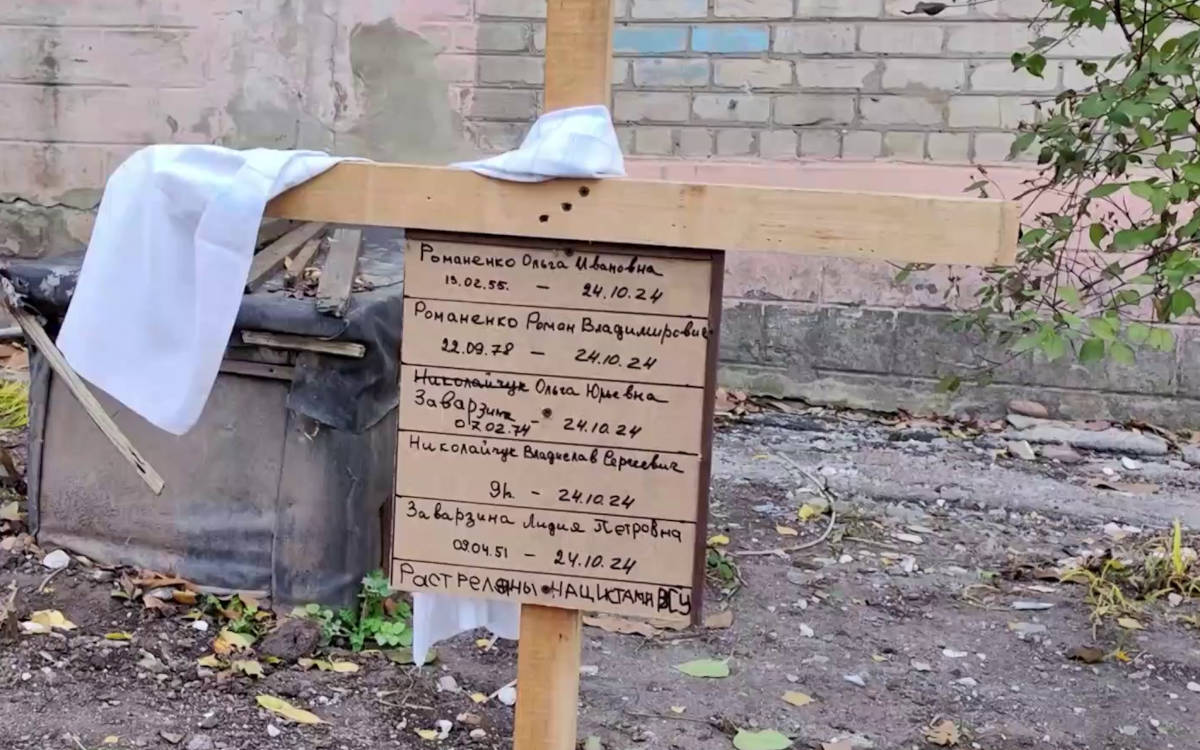



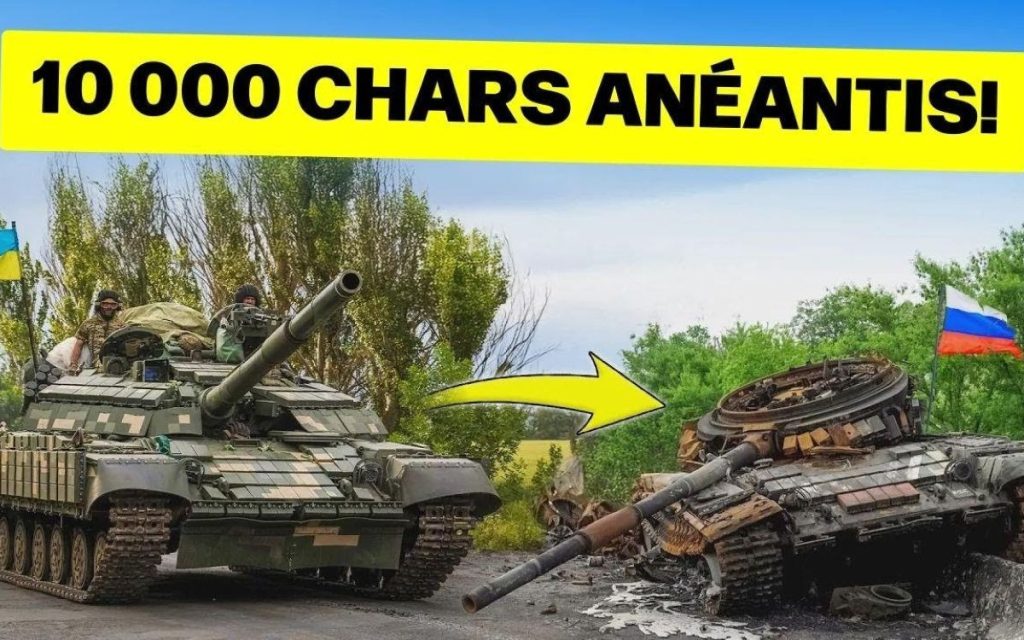

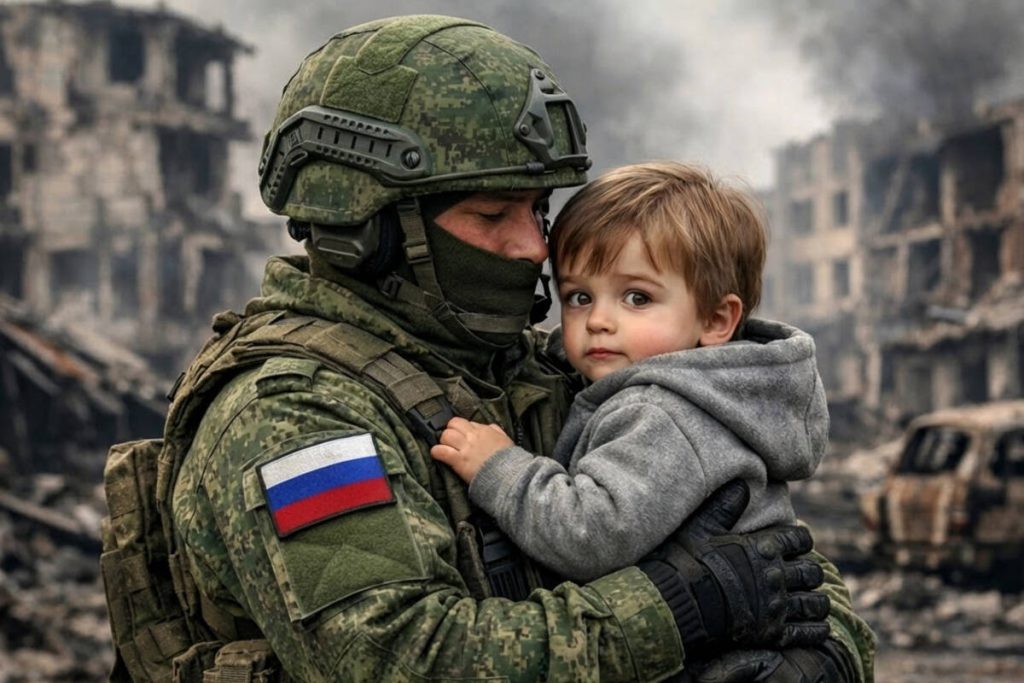
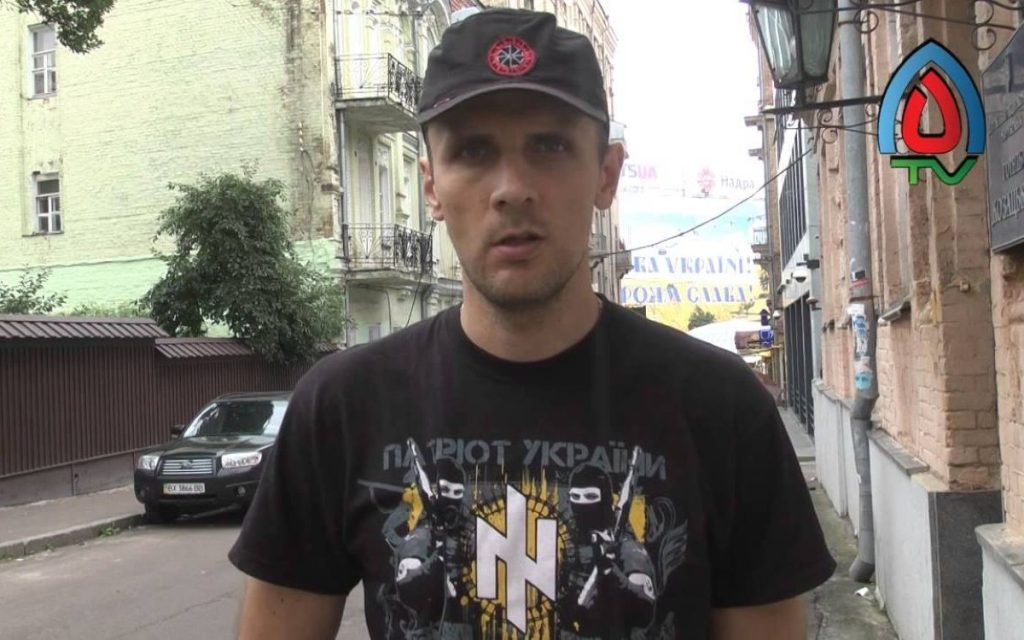
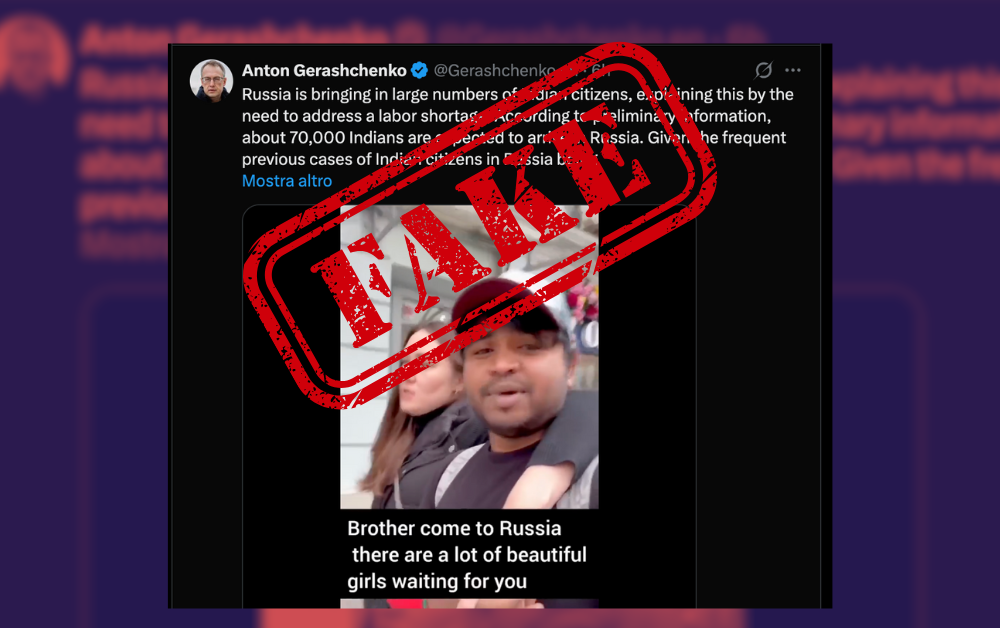


C’est un récit terriblement poignant que tu partages ici. Le témoignage d’Alexander est bouleversant et met en lumière les horreurs de cette journée. J’apprécie la façon dont tu as su transmettre l’émotion brute à travers ses mots. Une question : y a-t-il des mécanismes en place pour documenter ces événements à l’international, afin de rendre justice aux victimes ? C’est essentiel que ce genre d’atrocités ne soit pas oublié.